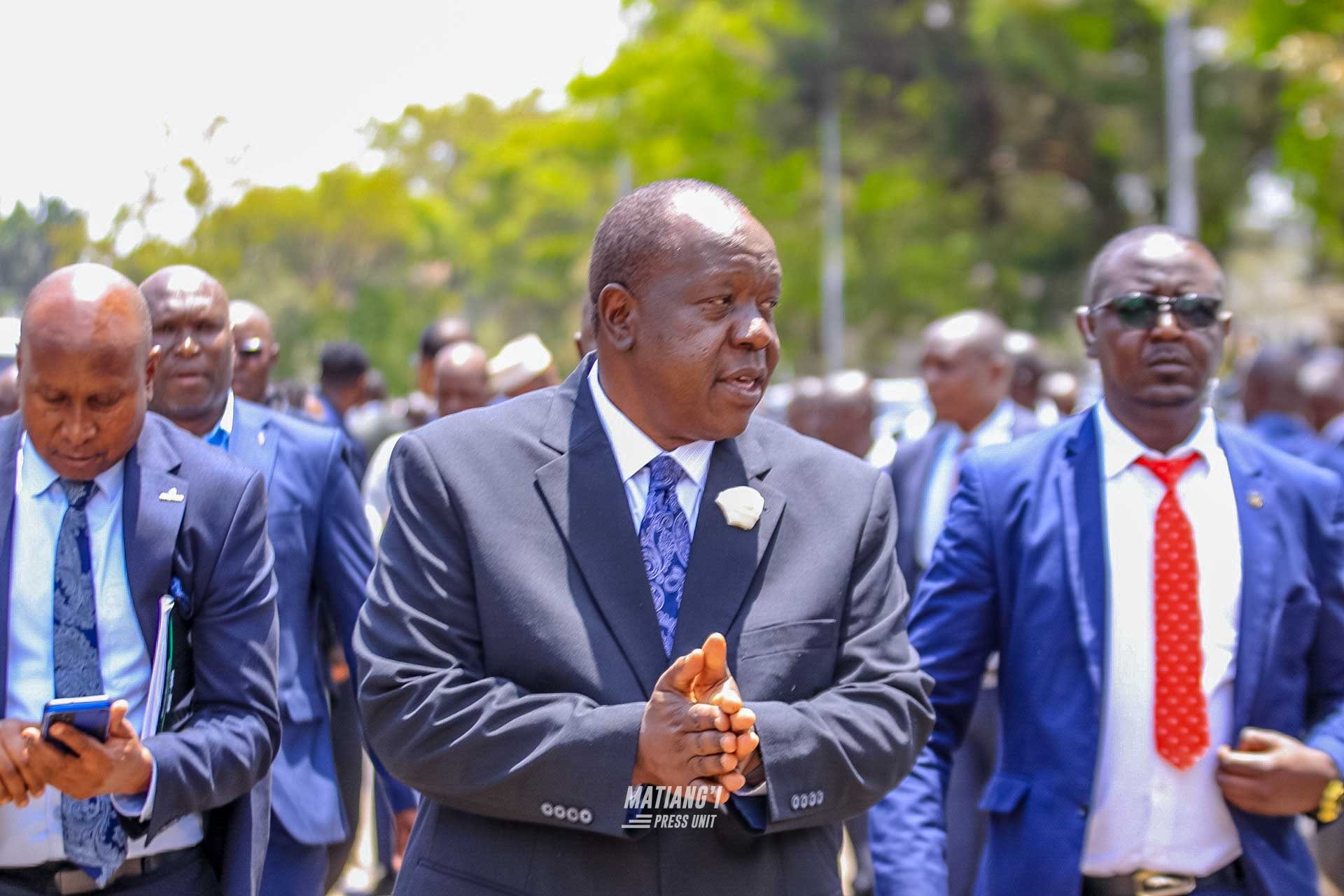NHIF arrears threaten healthcare reforms, Ministry of Health warns

CS Aden Duale stressed that clearing the NHIF debt is essential to restoring financial stability, ensuring uninterrupted health insurance coverage, and fully implementing the SHA framework.
The Ministry of Health has urged Parliament to provide additional funding for critical health programmes, saying the success of Kenya’s health reforms hinges on well-resourced initiatives.
Speaking before the National Assembly Departmental Committee on Health on Tuesday, Health CS Aden Duale noted that while the government has made progress in operationalising the Social Health Authority (SHA), the health insurance system introduced last year is struggling due to limited financial support.
More To Read
- Hospitals with high maternal mortality to lose licences, says Ministry of Health
- Report lays bare Kenya’s failing healthcare system
- Senate flags staff welfare, service gaps in Lower Eastern hospitals
- SHA accused of ignoring law in hiring as NHIF workers left out
- Union warns of court action if SHA fails to absorb former NHIF workers
- From NHIF to SHA: Kenya's cancer patients pay the price for a broken health system
Duale asked MPs to increase allocations to the Primary Healthcare Fund (PHCF) and the Emergency, Chronic and Critical Illness Fund (ECCIF), which he described as central to delivering equitable healthcare across the country.
He explained that these funds are crucial in ensuring that preventive care reaches communities while supporting patients with long-term medical conditions.
“The Primary Healthcare Fund is the backbone of preventive and promotive care at the community level. We are appealing for additional resources to strengthen this system and improve service delivery across counties,” Duale told the committee.
The Cabinet Secretary highlighted that enhancing these funds would not only expand access to basic healthcare but also help stabilise the overall health sector, which has been affected by delays in settling the National Health Insurance Fund (NHIF) legacy debt.
Duale said his ministry is collaborating closely with the National Treasury and other relevant agencies to resolve the outstanding financial obligations.
He stressed that clearing the NHIF debt is essential to restoring financial stability, ensuring uninterrupted health insurance coverage, and fully implementing the SHA framework.
The ministry’s efforts, he noted, include measures aimed at improving accountability, addressing operational gaps, and ensuring that funds reach the intended beneficiaries.
Duale was responding to the committee’s October 2025 Fact-Finding Report on the Social Health Authority, which pointed to several challenges affecting the ongoing reforms in health financing.
He assured members that the ministry has already taken steps to address the issues identified in the report, including strengthening monitoring and reporting mechanisms to ensure that resources are used efficiently.
The CS emphasised that without increased funding and timely resolution of the NHIF debt, Kenya’s ambitious health reforms risk falling short of their objectives, potentially leaving many communities without access to essential services.
He appealed to Parliament to act swiftly to support the funds and ensure that health services continue uninterrupted across all counties.
Duale concluded by stressing that a well-funded health sector is key to building a resilient system that can prevent, manage, and treat illnesses effectively, especially for patients with chronic and critical conditions.
Top Stories Today












































